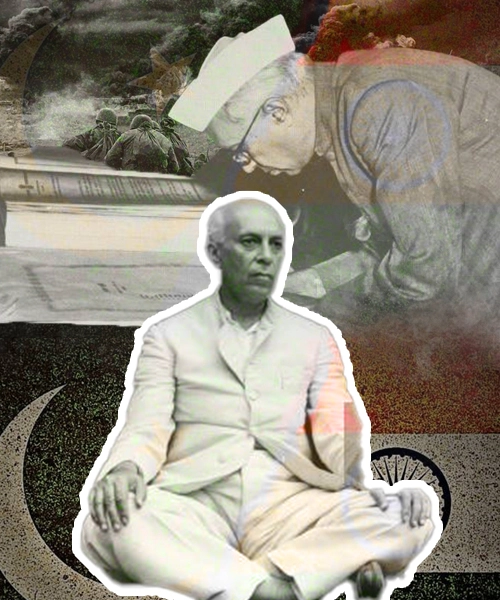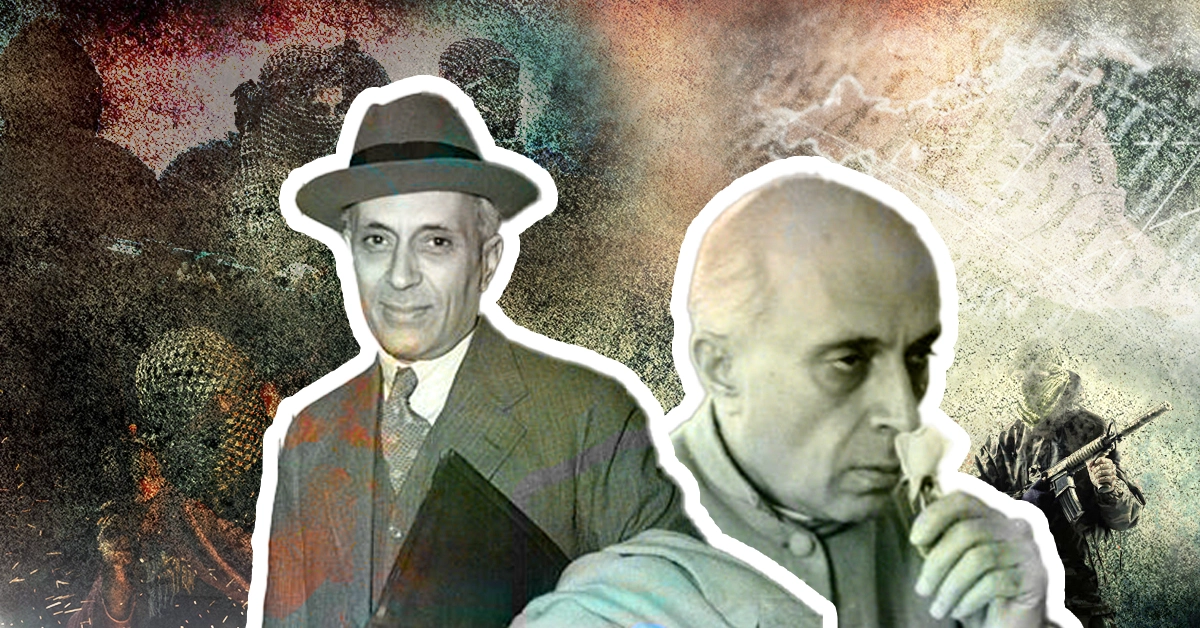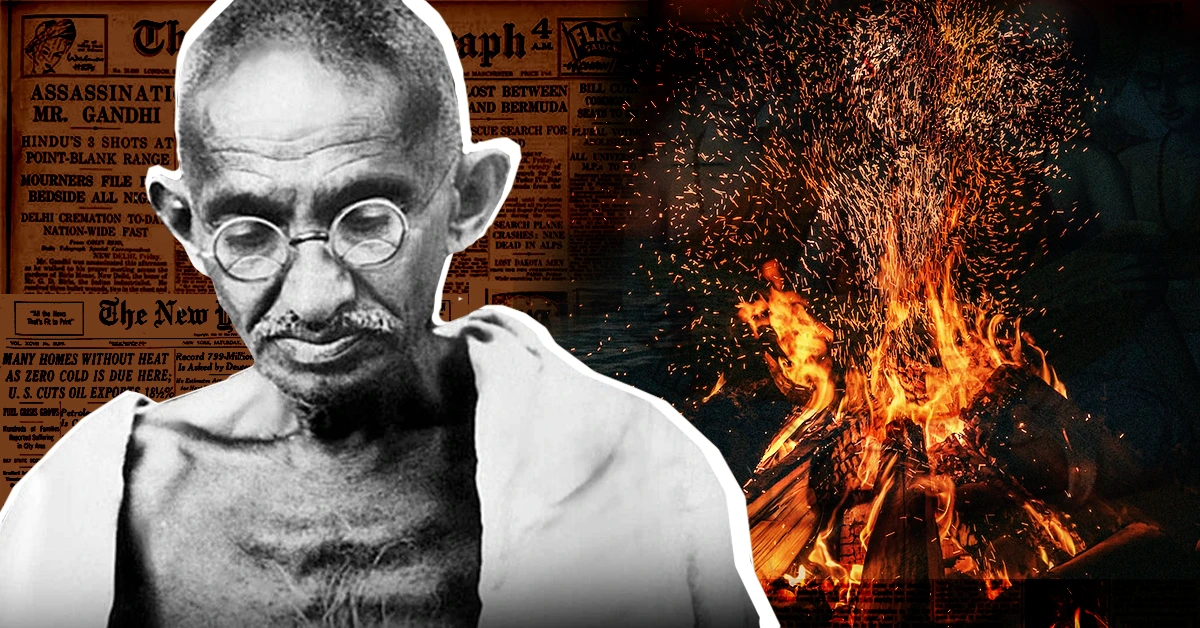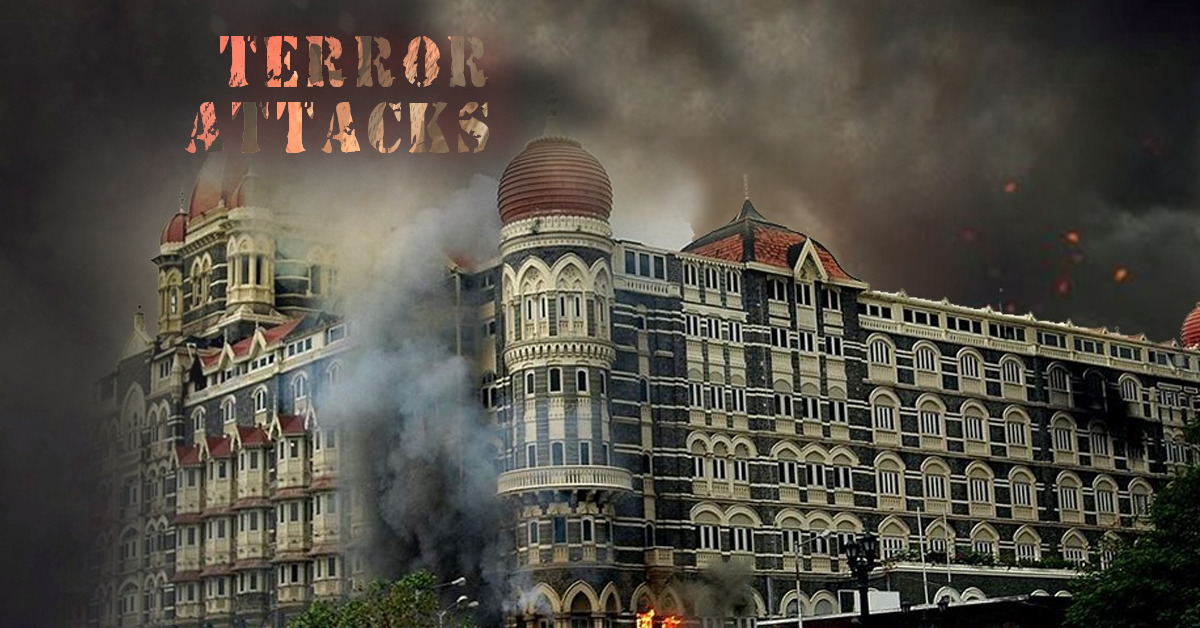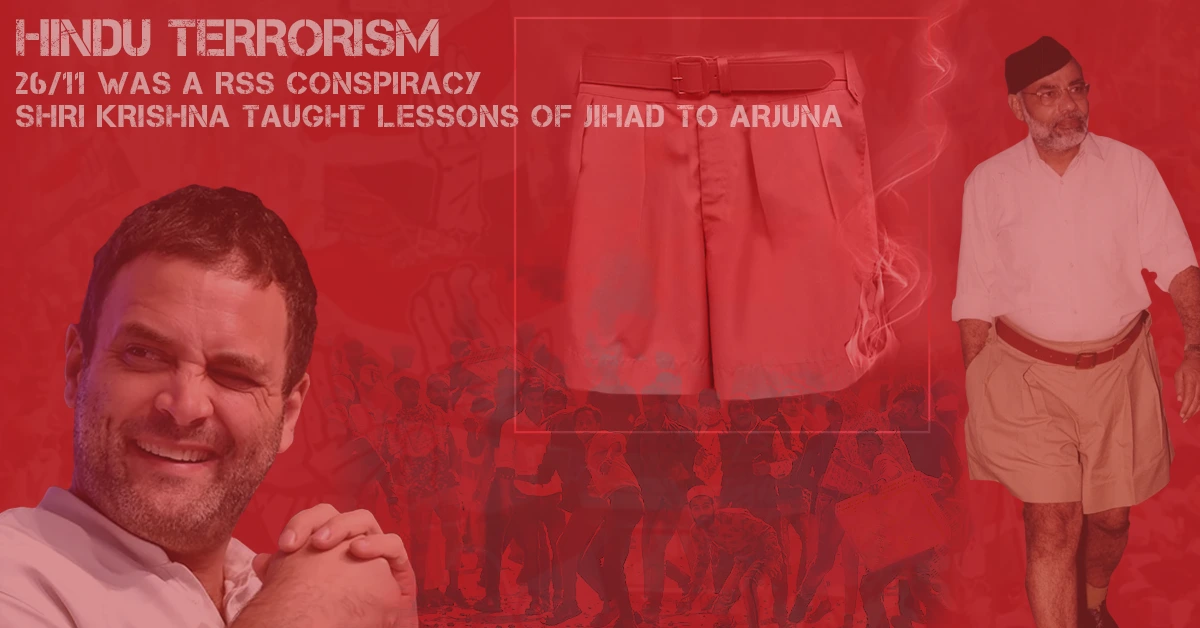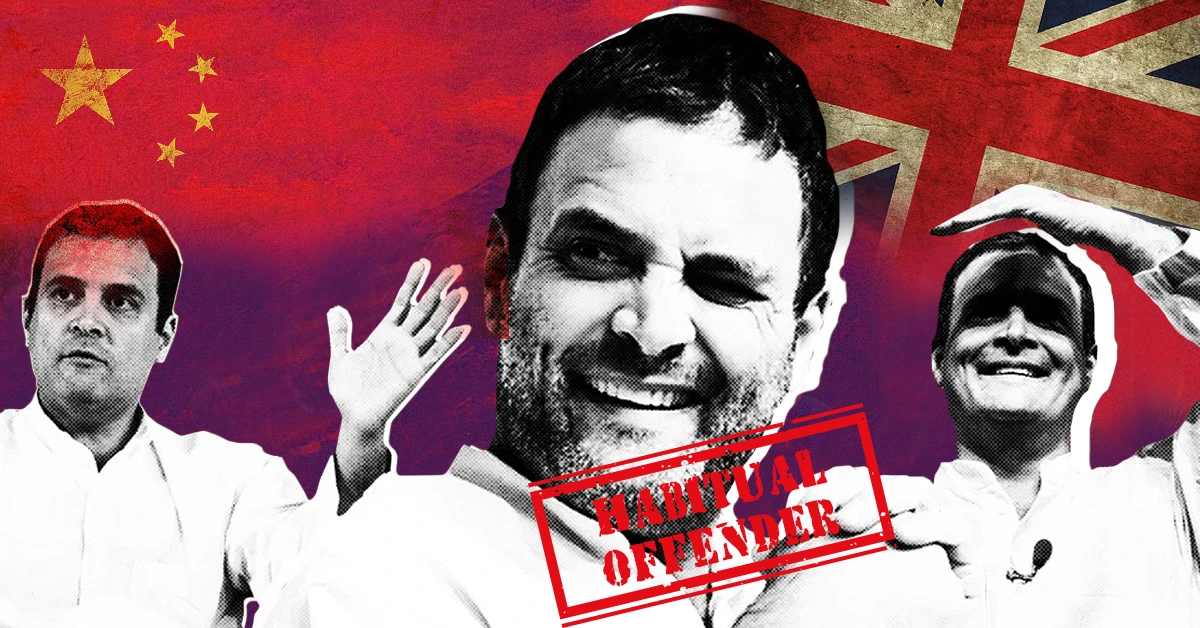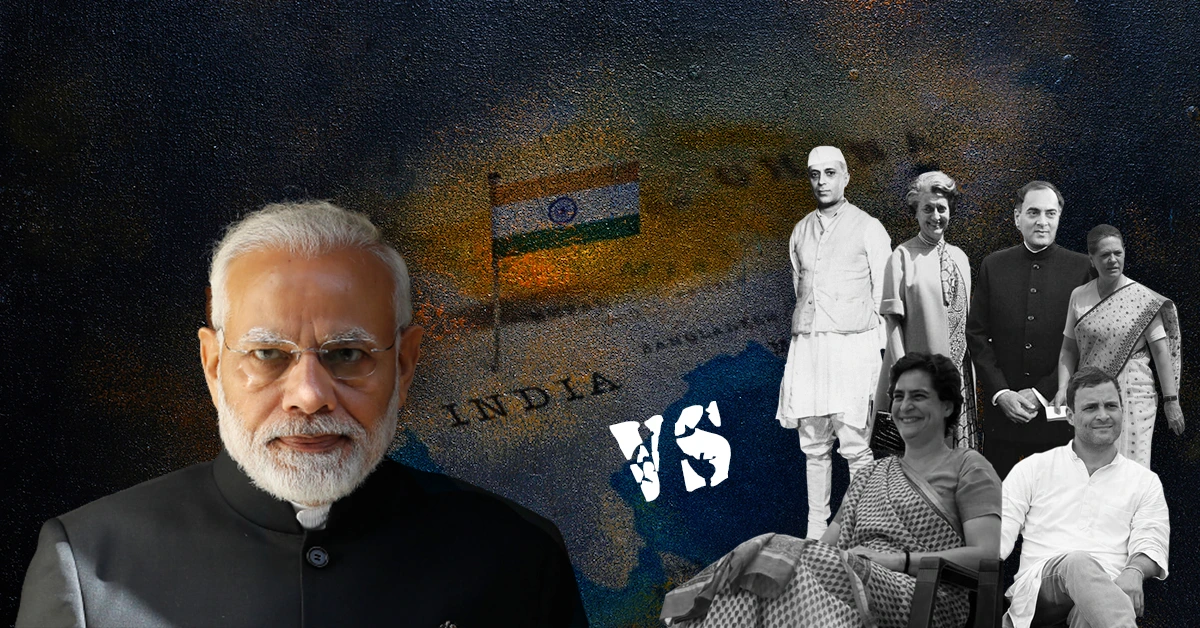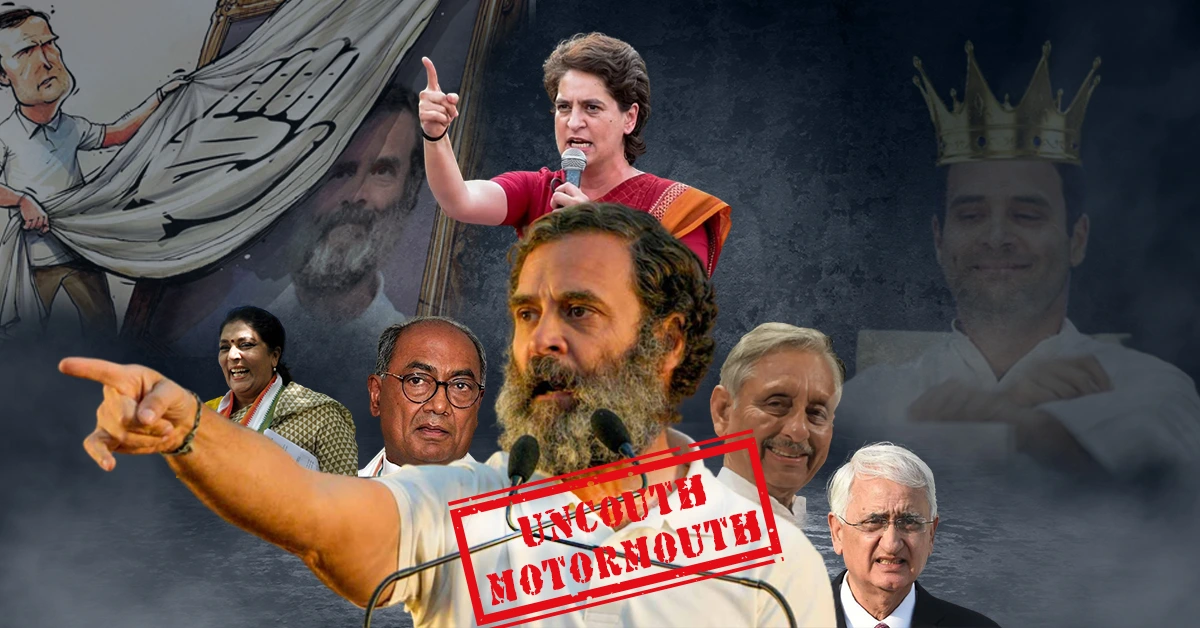On one hand Rahul Gandhi is talking about Bharat Jodo, on the other, his party has gone after RSS by posting inciteful messages. By claiming that India was never a nation and by pitching non-BJP ruled states against the center, Rahul Gandhi is trying to create a divide in the →Read More →
- December 27, 2023
- 7 Mins Read
The Himalayan Blunders: Lost Victories: Nehru's Costly Ceasefire
(Part II)
In 1947, Nehru’s meddlesome actions in Jammu and Kashmir marked a colossal blunder, prioritizing personal agendas over India’s security. His reckless promises, callous disregard for Maharaja Hari Singh’s pleas, and the disastrous ceasefire in 1948 allowed Pakistan to seize strategic regions, paving the way for future conflict and the rise of jihadist terrorism. Nehru’s egoistic choices inflicted profound and enduring pain on India, with the forced exodus of Kashmiri Hindus and the loss of innocent lives as grim reminders of his misguided leadership.
click play to listen to the article
यः सर्वदा द्वेषं धारयति, स एकः मधुरहीनो मधुकरः विचलति।
The one who harbors constant negativity goes astray like a bee without honey
Maharaja Hari Singh repeatedly sought to align Jammu and Kashmir with India without any conditions, yet each time, Nehru obstructed the process until his personal agenda was fulfilled. In sharp contrast you had Jinnah offering a signed blank sheet along with his own fountain pen to the Maharajas of Jodhpur, Jaisalmer, and Bikaner to put down their conditions for accession to Pakistan, saying: “You can fill in all your conditions.”
When India was being partitioned in 1947, the princely states had the freedom to choose between the two newly forming dominions, India and Pakistan. The decision regarding accession was exclusively between the rulers of the princely states and the leaders of the respective dominions, without any provision for consulting the people of these states. Out of the 560 princely states, all had integrated with India before 15 August 1947. Hyderabad and Junagarh posed challenges, but Sardar Patel made them fall in line with the rest of the States.
Nehru intervened solely in the case of Jammu and Kashmir. While Sardar Patel successfully brought even unwilling princely states into India, Nehru’s actions in this specific case were nothing short of a Himalayan blunder. Despite both the Maharaja and the “popular organization,” championed by Nehru, expressing a clear intent to accede to India, Nehru’s misguided approach created a colossal mess in the integration process.
Maharaja Hari Singh repeatedly sought to align Jammu and Kashmir with India without any conditions, yet each time, Nehru obstructed the process until his personal agenda was fulfilled. In sharp contrast you had Jinnah offering a signed blank sheet along with his own fountain pen to the Maharajas of Jodhpur, Jaisalmer, and Bikaner to put down their conditions for accession to Pakistan, saying: “You can fill in all your conditions.”
Nehru even concocted a narrative of popular support, a criterion not legally required nor essential, to delay the accession. The underlying motive was to ensure Sheikh Abdullah’s installation as the leader of Jammu and Kashmir, aligning with Abdullah’s own agenda of exiling Maharaja Hari Singh. For no other princely ruler was the criteria of popular support invented to determine accession. Yet, only for Kashmir, Nehru conveniently invented this ruse to thwart accession until his demand pertaining to Abdullah was met.
In a display of utter disregard for national interests, Nehru callously went even further by recklessly promising the Prime Minister of Pakistan a plebiscite to determine the fate of Jammu & Kashmir, despite the fact that Pakistan had attacked Jammu & Kashmir. It is the declaration of provisional accession, by Nehru and not by the Maharaja, that then started a chain of events that eventually led to the belief that Kashmir was somehow different, that its accession was open to debate or that any other possibility except permanent integration with India was even an option.
Invasion by Pakistan: The entire Kashmir history could have been so different. The matter of accession could have ended in July 1947 itself. The only cause that delayed Kashmir’s accession to India was Nehru’s own personal obsessions. The gravity of Nehru’s disregard deepened as he not only prolonged the accession process but callously ignored Hari Singh’s urgent request for the supply of arms and ammunition. In his Parliament speech dated 25 November 1947, Nehru accepted that he was aware in advance of Pakistan’s preparation of invading Jammu and Kashmir. “In September, news reached us that tribesmen of the northwest frontier province were being collected and sent to the Kashmir border. About this time, the state authorities asked us to supply them with arms and munition. We agreed to do so in the normal course. But in fact, no supply was made till events took a more serious turn.” This reveals further the callous role Nehru was playing with the security of India — using it as a tool to get his demands fulfilled. It is important to remember that Nehru, utilizing Gandhi’s influence, coerced Patel into sanctioning Rs 550-million aid to Pakistan, further intensifying the gravity of his misguided decisions.
The tragic fallout of the delayed signing of the Instrument of Accession cast a dark shadow over Kashmir, as Pakistan declared jihad in the region, leading to the merciless killing and maiming of thousands by its tribal militia.
Pakistan invaded Jammu & Kashmir on 20 October 1947. But installing Sheikh Abdullah, his friend, in power was more important to Nehru than integrating Kashmir irrevocably with India. In a letter to MC Mahajan, the then Prime Minister of Jammu & Kashmir, Nehru revealed his desire by writing, “I suggest to you the urgency of taking some steps like the formation of a provisional government. Sheikh Abdullah, who is obviously the most popular person in Kashmir, might be asked to form such a government.”
The sensible approach would have been to first firmly integrate Jammu and Kashmir into India, ensuring a permanent closure of the door to Pakistan. But, even in the face of a known invasion of Jammu and Kashmir by Pakistan, Nehru, consumed by animosity towards Maharaja Hari Singh, callously failed to protect India’s interests, persistently delaying the Maharaja’s plea for accession.
Had ceasefire not happened, there would have been no PoK. - Home Minister Amit Shah during Parliamentary debate
Nehru’s Ceasefire Catastrophe: The invasion by Pakistan persisted until 31 December 1948. By then, India had successfully reclaimed two-thirds of Jammu and Kashmir, and was poised to retake the remaining one-third. However, at this critical juncture, Nehru left the nation bewildered by imposing a unilateral ceasefire. The aftermath of this ceasefire resulted in Pakistan gaining control of strategic regions like Gilgit and Baltistan, which hold significant value and are currently being utilized by China for constructing a road link to the Persian Gulf.
Nehru’s blunders didn’t just cost Kashmir dearly. The entire country too was hit badly by his egoistic personality, and obnoxiously ideological and flippantly moralistic worldview. India bears a profound and heart-wrenching burden as a result of Nehru’s choices, where friendships and personal agendas took precedence over national interests. As a consequence of the ceasefire, a part of India’s land was gifted to China by Pakistan, and the haunting specter of jihadist terrorism emerged in the 1980s. The forced exodus of Kashmiri Hindus from their cherished ancestral homes turned them into refugees within their own homeland. Thousands of innocent Indian lives, men, women, and children alike, were tragically lost to the scourge of terrorism. Brave soldiers, from every corner of India, sacrificed their lives in service of our motherland.
The emotional toll of these events still resonates deeply, painting a distressing picture of the sacrifices endured for the nation. All this could have been different, had Nehru prioritized the well-being of our motherland over his personal agendas.
Nehru’s egregious missteps in Jammu and Kashmir reveal a self-serving agenda, obstructing the accession process, and prioritizing personal vendettas over national interests. His concoction of a false narrative, reckless promises, and the disastrous ceasefire reflect a leadership blinded by ego and ideology, resulting in profound and lasting harm to India and the tragic sacrifices endured by its citizens. Nehru’s legacy is one of monumental failures and a callous betrayal of the nation’s well-being.
Nehru’s abysmal leadership, marred by a servile attitude toward British interests, a blatant disregard for Maharaja Hari Singh’s desperate pleas, and a criminally negligent delay in responding to the Pakistani invasion, inflicted irreversible damage on India. His self-serving actions spawned doubt, separatism, and bloodshed, creating a regrettable and tumultuous legacy that continues to haunt the nation.
Share this article:
Leave a Comment
Recommended For You
Between choosing the high moral ground and the practical path, the Bharatiya Janata Party (BJP) chose the practical one by aligning with Ajit Pawar. To blame the BJP for not choosing the moral high ground while giving a clean-chit to others for playing dirty politics is nothing but hypocrisy.
On 30 January 1948, the Indian state under Congress decided to punish the Brahmins for no crime of theirs. Devotees of Gandhian Ahimsa were unleashed on innocent Brahmins to perpetrate a political genocide. Congress supported mobs pillaged, burnt and looted the homes of hundreds of innocent Brahmin families. These burning →Read More →
The Congress and its Lutyens cabal do not for a moment think before tarnishing India’s image — for, for them, removing Modi and plunging India back to the old corrupt political continuum is the only mode of survival.
The people of the country found Damocles sword hanging over their heads during Congress tenures. The Congress tenure must serve as a reminder to us that never again shall we allow our fate to be put in the hands of such evil forces. Never ever!
Through the Bharat Jodo Yatra, Rahul Gandhi seems to have waged a war against the Hindus, by targeting the Rashtriya Swayamsevak Sangh. The Congress that seeks to thrive on organized violence needs to be confined to the dustbin of history.
Rahul Gandhi has the habit of making fabricated allegations beyond facts. There are several instances, besides him lying, where Rahul Gandhi has chosen to willingly undermine India’s sovereignty.
The Gandhi family always places its partisan interest on a higher pedestal than national interest, and Narendra Modi’s biggest political contribution is to end this dynastic rule. India must unite again and stand firmly behind Narendra Modi to defeat this multi-cornered assault on India’s narrative as a rising power.
The responsibility for taking India’s political discourse to such low levels of civility lies purely with Rahul Gandhi. Rahul Gandhi has been deliberately indulging in these theatrics with a definitive idea of spoiling the country’s public discourse.
The Lutyens believes their visceral hatred for PM Modi gives them the ticket to use any means to destabilize the country in order to weaken Modi. But in spite of all the attempts by this syndicate, Modi has successfully managed to bring in transformation that India much needed.

